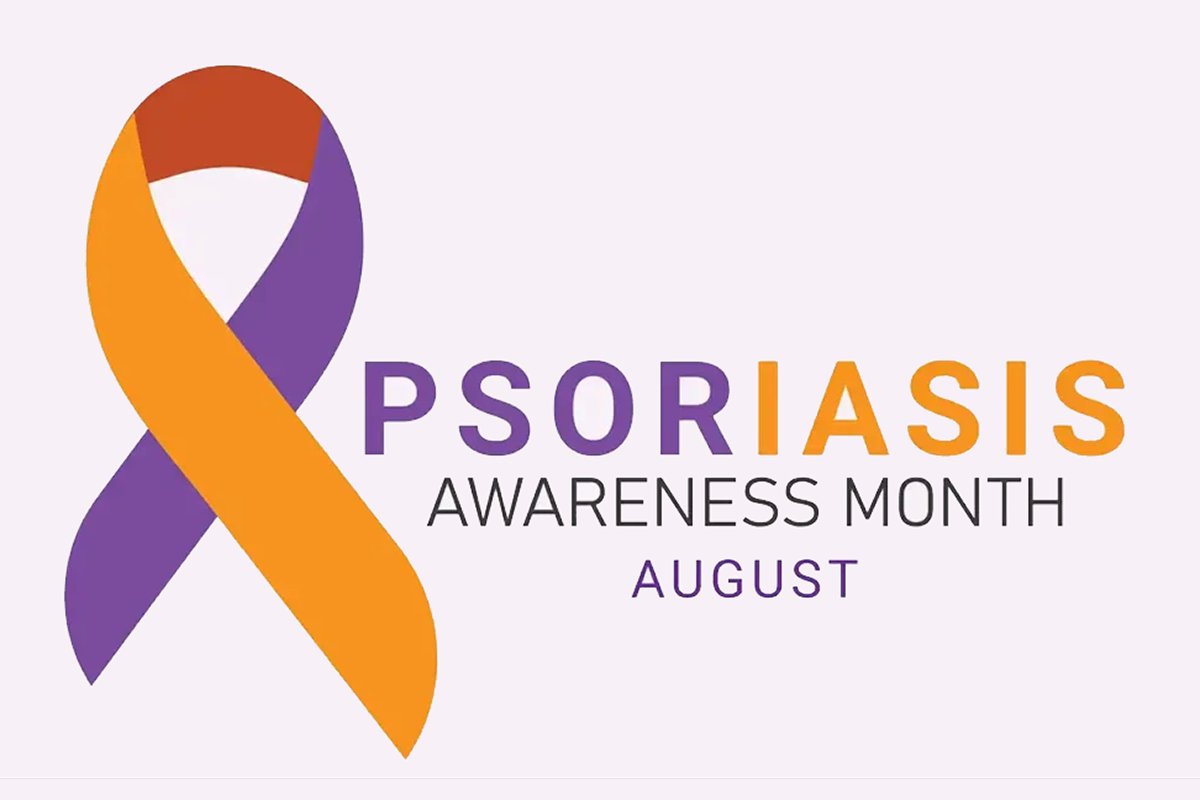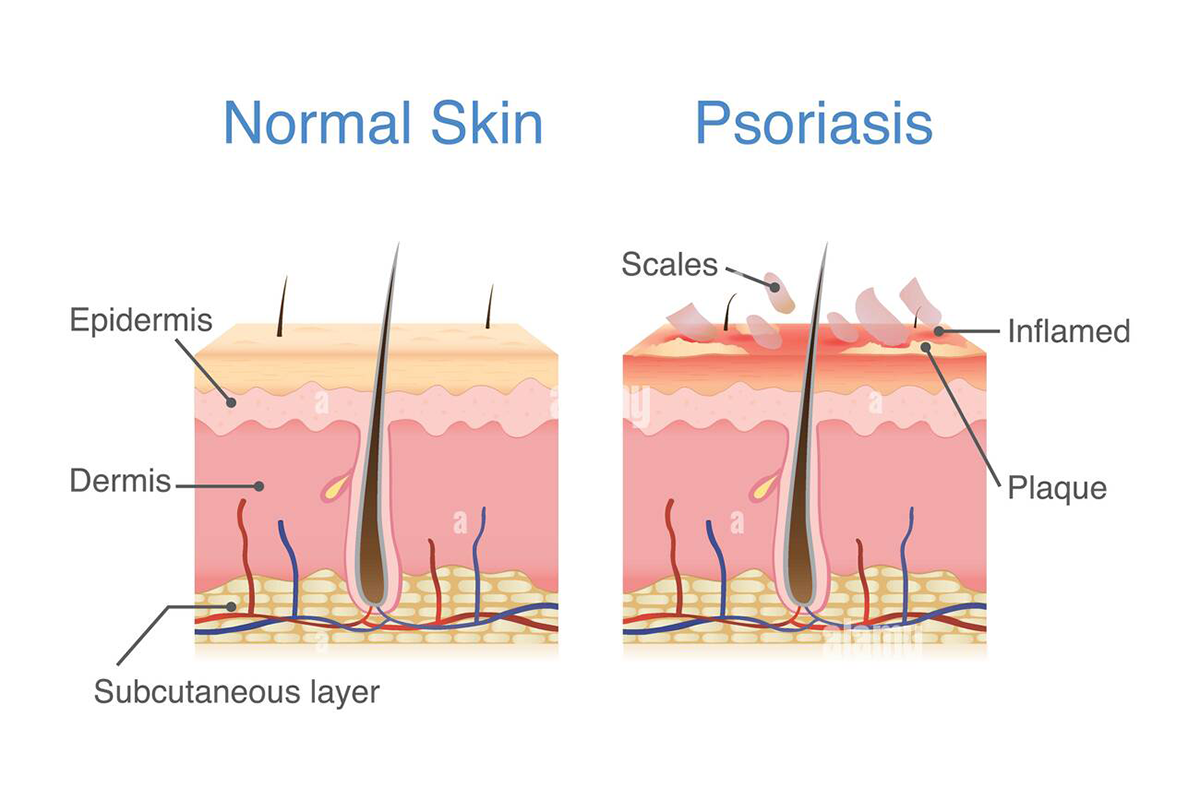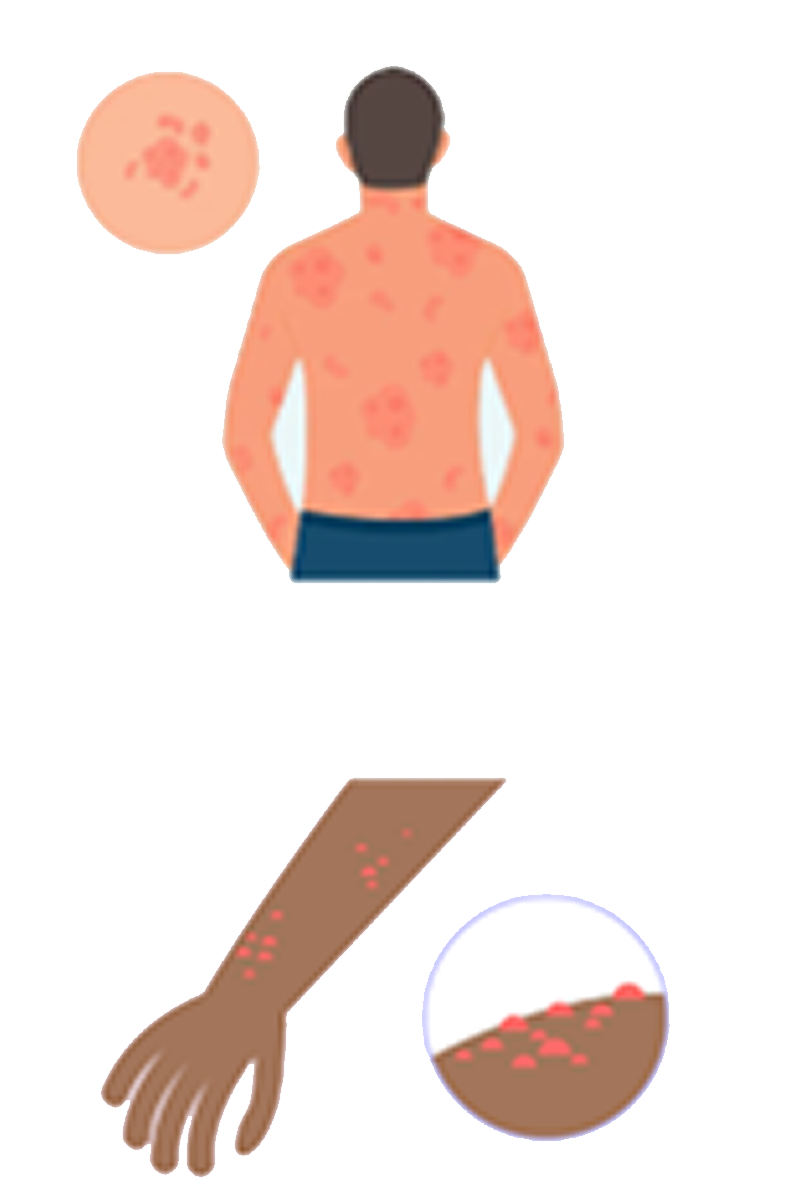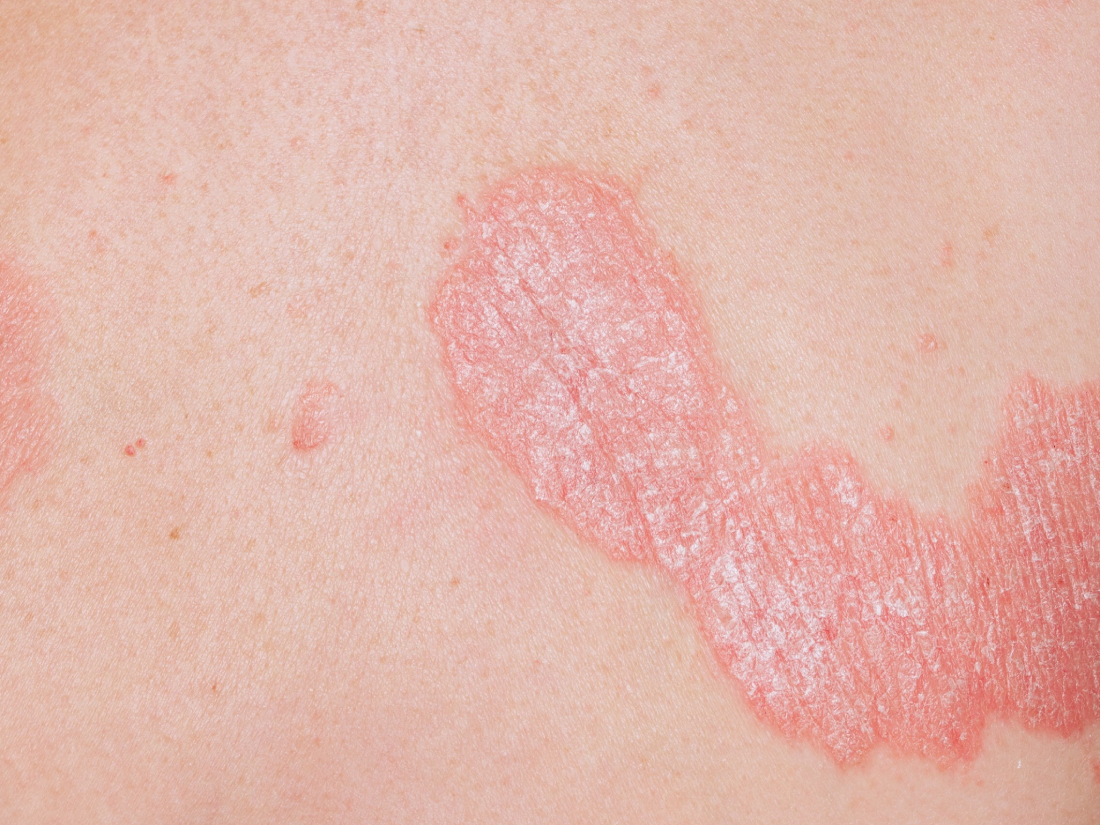We use cookies to help provide you with the best possible online experience.
By using this site, you agree that we may store and access cookies on your device. Cookie policy.
Cookie settings.
Functional Cookies
Functional Cookies are enabled by default at all times so that we can save your preferences for cookie settings and ensure site works and delivers best experience.
3rd Party Cookies
This website uses Google Analytics to collect anonymous information such as the number of visitors to the site, and the most popular pages.
Keeping this cookie enabled helps us to improve our website.
Churchill Medical Centre
Psoriasis Awareness Month
Friday 1st to Sunday 31st August 2025 - We take action together, in support of our community, to help rewrite the narrative associated with Psoriasis.
What is Psoriasis Awareness Month?
This month is dedicated to raising awareness about psoriasis, a chronic autoimmune condition that affects the skin. The goal is to increase understanding of psoriasis, help to support those living with psoriasis, and encourage research into better treatments.
Psoriasis Awareness Month is organised by several health organisations and advocacy groups to highlight the impact of psoriasis on millions of people worldwide. Educational seminars, support group meetings, fundraising events and public awareness campaigns help to support those living with the condition.


What is Psoriasis?
Psoriasis is classed as an immune-mediated inflammatory condition which affects 2% of the UK population. Psoriasis is a result of an overactive immune system, mistakenly attacking health skin cells, accelerating skin cell production.
Generally, it can take 3 to 4 weeks for new skin cells to form and replace old ones. However, it can take only 3 to 7 days for people with psoriasis.
Recognising Psoriasis Symptoms
Psoriasis can appear on any part of the body and there are various types of psoriasis.
- Skin rashes or patches: These may start as small bumps and turn into larger patches that are red, dark pink, or purple and covered in loose, silver or white coloured scales. These scaly areas are called plaques.
- Itchy, painful skin: Inflamed skin may bleed or crack, particularly if you scratch it. This can cause infection and severe pain, swelling and fever.
- Problems with your fingernails and toenails: Nail psoriasis can range from mild to severe. The following signs may suggest nail psoriasis. Discolouration and splitting of the nail, ‘Pitting’ (small dents) across the surface of the nail and loss of the nails usual healthy look, shape and feel.

Available Treatments for Psoriasis
1. Topical treatments
Creams and ointments can be applied directly to the skin. These include corticosteroids, vitamin D analogues, and topical Retinoids.
2. Phototherapy
Phototherapy treatment involves exposing the skin to ultraviolet light under medical supervision. It can help to slow down the rapid growth of skin cells.
3. Treatments from a Dermatologist
If your symptoms are particularly severe, your GP may refer you to a skin specialist (dermatologist). They may prescribe oral and injected medications that work throughout the entire body.

How to get involved in your community
There are many ways to support, educate, and participate this August, whether you live with psoriasis or want to support someone who does.
- Educate yourself and others: Share your knowledge of psoriasis with friends and family to educate and raise awareness.
- Share your story: Personal stories can help others understand the impact of psoriasis and how there are many people living with this condition.
Share your story with the Psoriasis Association
- Donate or Fundraise: Consider donating to a psoriasis research organisation or charity.
- Participate in events: Take part in walks or runs during Psoriasis Awareness Month.
Are you interested in taking part in Psoriasis Awareness Month?
Visit the Psoriasis Association website for more information
Why Psoriasis Awareness Month Matters
Psoriasis is a common condition which is often under-discussed, misdiagnosed, or minimized. The stigma surrounding psoriasis often being misunderstood can lead to delay in treatment and isolating those with this condition.
The annual event helps to rewrite the narrative associated with psoriasis. It highlights that psoriasis is not contagious and flare ups can be caused by stress, infection or weather.
Scrolling through social media and seeing others with their psoriasis can have a positive impact on the mental health and well-being of psoriasis patients and remind us that visibility can be healing.
#PsoriasisAwarenessMonth
#SupportPsoriasis
#PsoriasisEducation
#ChronicIllness
#PsoriasisResearch
#PsoriasisUK

Published: Aug 1, 2025